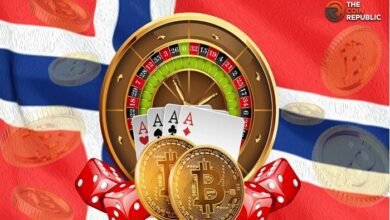THE ROLE OF VIDEO GAMES IN EDUCATION AND SKILL DEVELOPMENT

COGNITIVE BENEFITS: MORE THAN JUST BUTTON MASHING
Contrary to the stereotypical image of gamers as button-mashing zombies, video games are nuanced platforms that engage players in complex decision-making processes. Games like “Portal” and “Tetris” require players to think spatially and strategically, fostering cognitive skills such as critical thinking and problem-solving. The fast-paced nature of many games also hones reflexes and improves hand-eye coordination.
Take, for instance, the widely popular game “Minecraft.” While seemingly a simple sandbox game, it requires players to plan, organize, and execute intricate structures. The game’s open-world environment encourages creativity, spatial awareness, and resource management—all valuable skills applicable to real-world scenarios.
LEARNING THROUGH SIMULATION: A CLASSROOM IN PIXELS
One of the remarkable aspects of video games is their ability to simulate real-world scenarios, offering an immersive learning experience. Simulation games, such as “SimCity” and “Microsoft Flight Simulator,” provide players with the opportunity to manage cities or fly planes, respectively. These experiences can cultivate skills in project management, resource allocation, and decision-making.
In the educational realm, teachers are increasingly recognizing the potential of game-based learning. Platforms like “Kahoot!” and “Prodigy” incorporate gamified elements into lessons, making learning engaging and interactive. This innovative approach not only captures the attention of students but also reinforces educational concepts in a memorable way.
TEAMWORK AND SOCIAL SKILLS: GUILDS AND FRIENDSHIPS
Contrary to the stereotype of the solitary gamer, many video games emphasize teamwork and collaboration. Multiplayer games like “Fortnite,” “League of Legends,” and “Among Us” require players to communicate, strategize, and work together to achieve common goals. These interactions contribute to the development of social skills and teamwork—a far cry from the isolated gamer stereotype.
Online gaming communities and guilds also provide a platform for individuals from diverse backgrounds to connect and collaborate. The ability to communicate effectively in a team, delegate tasks, and resolve conflicts are skills that transcend the virtual realm and find applicability in the professional world.
ADAPTABILITY AND RESILIENCE: RESPAWNS AND REAL LIFE

One of the unique aspects of video games is the concept of respawning—the ability to restart after failure. This mechanic ingrains a sense of resilience and adaptability in players. Games like “Dark Souls” and “Celeste” are notorious for their challenging levels, requiring players to persistently try and learn from their mistakes.
This virtual resilience often translates to real-life scenarios. The iterative process of trial and error in games fosters a growth mindset, teaching players that failure is not the end but a stepping stone towards success. This mindset is increasingly recognized as crucial in facing challenges in education and the workplace.
CULTURAL AND HISTORICAL UNDERSTANDING: BEYOND THE GAME WORLD
Video games have evolved into a powerful medium for storytelling, providing players with immersive narratives that explore historical events, cultural nuances, and societal issues. Games like “Assassin’s Creed” and “Red Dead Redemption” transport players to different eras, offering a unique perspective on history and culture. For those who are into video games, have opinions to express on Instagram, teach others games’ evolution history and their influence on the future, consider utilizing Mixx can amplify their voice among the diverse community of Instagram users.”
This narrative engagement enhances players’ understanding of the world, fostering empathy and cultural awareness. For instance, navigating the bustling streets of Florence in “Assassin’s Creed II” provides a visceral experience of Renaissance Italy, supplementing traditional learning methods.
CONCLUSION: PRESS START FOR A WELL-ROUNDED EDUCATION
As we continue to press forward into the digital age, the educational landscape is evolving, and video games are undeniably playing a pivotal role. From honing cognitive skills to fostering social interaction, the benefits of gaming are multifaceted. As a seasoned gamer and observer of the gaming community, I can confidently assert that video games are not just a form of entertainment; they are a dynamic tool for education and skill development.
So, the next time you see someone immersed in a virtual world, remember that behind the controller or keyboard lies a potential problem solver, a strategic thinker, and perhaps even a future leader. It’s time to acknowledge the power of video games in shaping the minds of the next generation and press start for a well-rounded education that extends beyond the confines of traditional classrooms.





